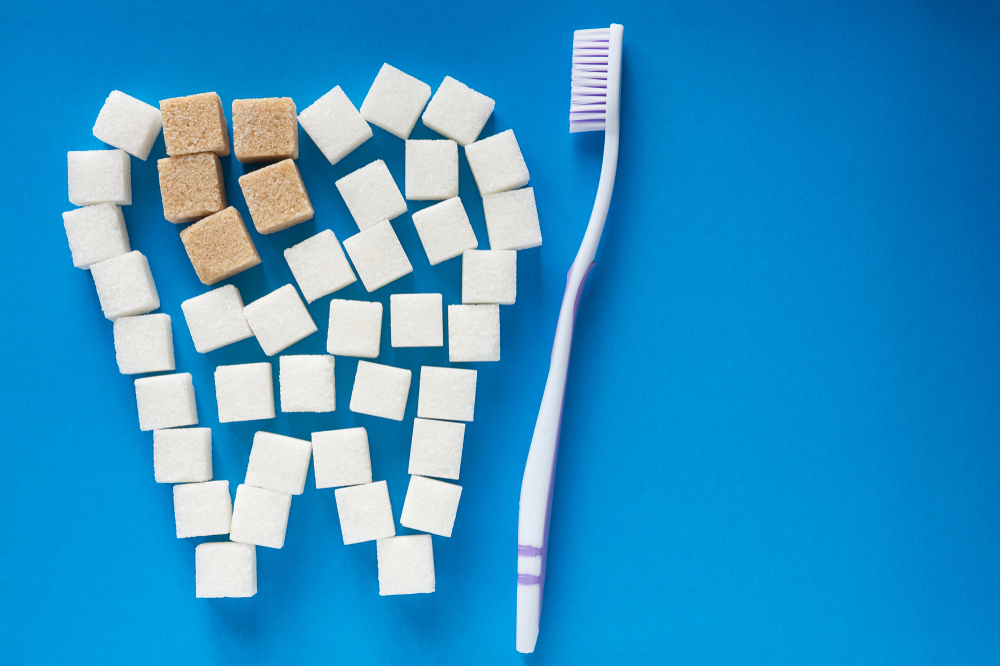How Does Diabetes Affect Teeth?

Diabetes affects approximately 29.1 million people in the United States, and it’s estimated that around 8 million don’t even know they have this serious health problem. Both Type I and Type II diabetes results in high blood sugar levels. This, in turn, causes problems in several parts of your body including the kidneys, heart, eyes, and even your teeth.
Gum Disease and Diabetes
Since diabetes interferes with your resistance to infection, this puts you at a greater risk of developing gum disease. Gingivitis is an inflammation caused by plaque, that sticky substance that accumulates on teeth and gums. Without regular checkups and cleanings, gingivitis can destroy the tissue and bone that surround and support the teeth. They will become loose and wobbly. Eventually, the affected teeth will fall out. Additionally, gum disease can cause the blood sugar to become even more elevated.
If left untreated, diabetes can cause a variety of other oral problems such as the following:
- Burning mouth syndrome
- Dry mouth, leaving teeth more susceptible to decay
- Fungal infections such as thrush and oral candidiasis
- Bacterial infections in the mouth
- Problems tasting food
- Delayed healing of wounds in the mouth
- Early teeth eruption in children with diabetes
What You Can Do
Diet and exercise are the two most important defenses to help keep diabetes under control. Make sure to use any diabetic related medications your doctor has prescribed as directed. Schedule doctor’s appointments to have your cholesterol, triglyceride, and blood sugar levels monitored frequently. Brush your teeth twice a day with a soft toothbrush. Floss between your teeth. Avoid using any tobacco products.
What Your Dentist Can Do
Make sure your dentist is aware of your medical history. Your doctor and dentist can work together as a team. Regular professional deep cleanings will reduce plaque and help avoid gum disease. Bacterial infections in the mouth can be treated with antibiotics that the dentist prescribes. The dentist can also prescribe medications for dry mouth problems.
Your dentist will make dental checkups and procedures as short and stress-free as possible. Schedule morning appointments since this is when blood glucose levels are more stable. With collaboration between your doctor and dentist, along with your healthy practices, the outlook is optimistic for good dental health and a long-lasting smile.


